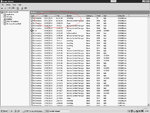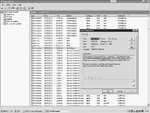Yamato
Legendary member
- Messages
- 9,840
- Likes
- 246
Last edited:
The track features a version of the ever-changing Plastic Ono Band — Lennon on lead vocals, acoustic guitar and electric piano, Billy Preston on grand piano, Klaus Voorman on bass guitar and backing vocals, Alan White on drums, George Harrison on electric guitar and backing vocals, Yoko Ono on backing vocals, Beatles assistant Mal Evans on chimes and handclaps, Beatles then-manager Allen Klein and a dozen or so late-night pub revellers from Hatchetts Pub on overdubbed backing vocals — it was released on 6 February 1970. Backed by Ono's "Who Has Seen the Wind?" (which Lennon produced), it peaked at number three on the Billboard Hot 100 in the US and number five on the UK Singles Chart. The pair appeared on Top of the Pops to perform the song live.
In 1973,[2] U.S. Representative Harley Orrin Staggers heard the song–which features the line "But you're still ****ing peasants as far as I can see"–on WGTB and lodged a complaint with the Federal Communications Commission (FCC). The manager of the station, Ken Sleeman, faced a year in prison and a $10,000 fine, but defended his decision to play the song saying, "The People of Washington [D.C.] are sophisticated enough to accept the occasional four-letter word in context, and not become sexually aroused, offended, or upset." The charges were dropped.
"Real Love" is a song written by the English rock musician John Lennon. Lennon made six takes of the song in 1979 and 1980 with "Real Life", a different song that merged with "Real Love". The song was ignored until 1988 when the sixth take was used on the documentary soundtrack Imagine: John Lennon.


Disc and disk are the two alternative spellings of the descriptive word for things of a generally thin and circular geometry. These variations are due to the way in which the words originated. The discussion here somewhat focuses on how the word applies to data-storage media. See Disc (disambiguation) for other meanings.
The earlier word is disk, which came into the English language in the middle of the 17th century, and (probably following pre-existing words such as risk) it was spelled with a k. The spelling disc was introduced in the 18th century, following an increasing tendency to base the spelling of words on their roots: in this case the Latin word discus and the Greek word δισκος (note that kappa in Greek is usually transliterated by c rather than k). In the 19th century, disc became the conventional spelling for audio recordings made on a flat plate, such as the gramophone record; this usage gave rise to the modern term disc jockey.[1] Early BBC technicians differentiated between disks (in-house transcription records) and discs (the colloquial term for commercial gramophone records, or what the BBC dubbed CGRs).[2]
By the 20th century, the c-spelling was more popular in British English, while the k-spelling was preferred in American English. In the 1950s, when the American company IBM pioneered the first hard disk drive storage devices, the k-spelling was used. Consequently, in computer jargon today it is common for the k-spelling to refer mainly to magnetic storage devices (particularly in British English, where the term disk is sometimes regarded as a contraction of diskette, a much later word and actually a diminutive of disk).
Some latter-day storage device manufacturers prefer the c-spelling. In 1979 the Dutch company Philips, along with Sony, developed the compact disc medium; here, the c-spelling was chosen. The c-spelling is now used consistently for optical media such as the compact disc and similar technologies.[3]

